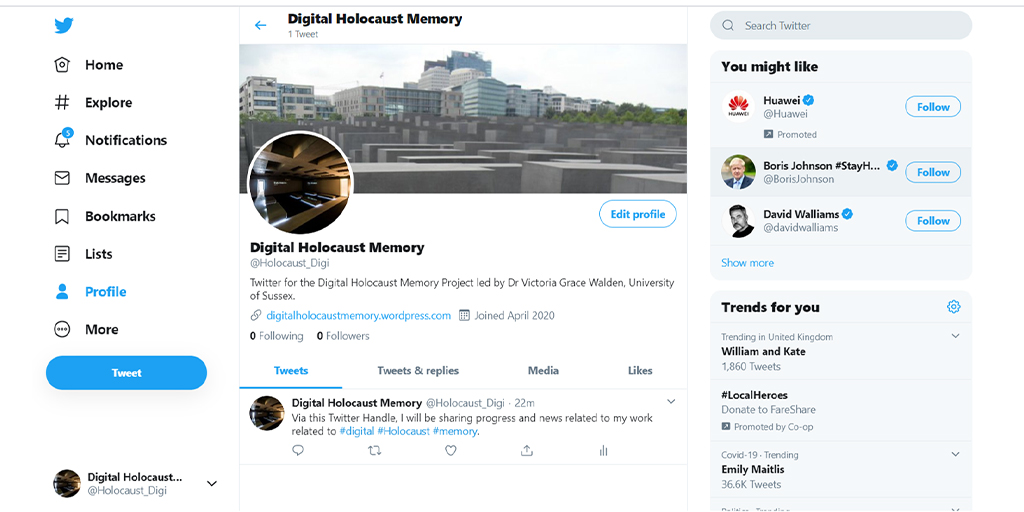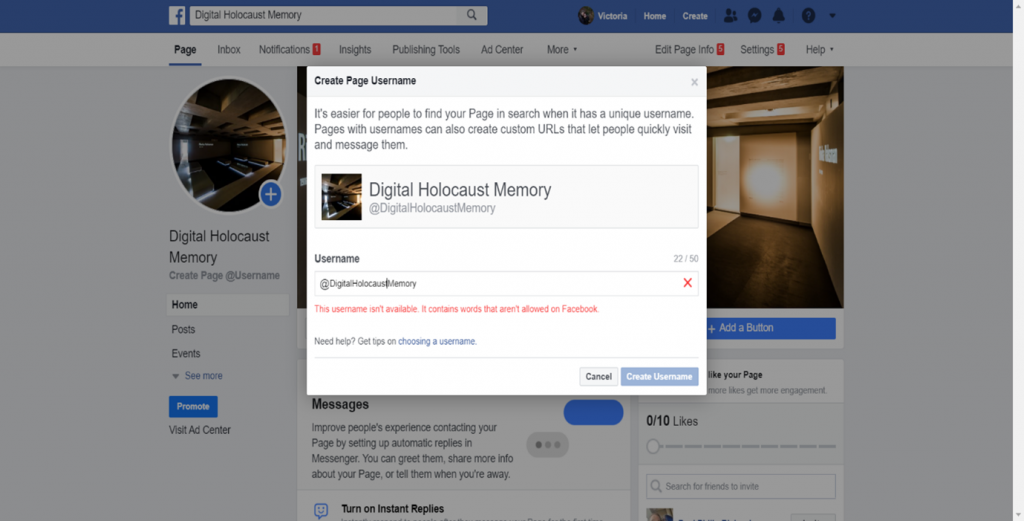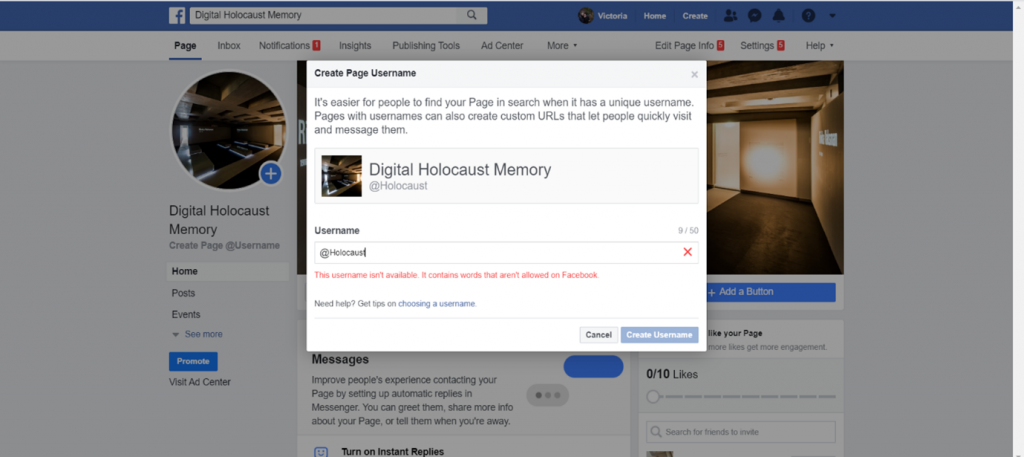
What’s in a Name? An Unexpected Researchable Moment
What’s in a Name? An Unexpected Researchable Moment
I did not expect my first post to be so meta – but today I found myself contemplating the ethics of naming Holocaust research projects online.
What’s in a name? Whilst, like all academic projects, this work has its long official title, for online purposes I had settled on ‘the Digital Holocaust Memory project’, which just about fits nicely on a WordPress page. However, apparently, it’s not favoured by social media platforms. Here’s a quick overview of some of my project naming dilemmas online.
Twitter
This popular micro-post site has always frustrated users with its tight character limits, and this was no different with this project. It would not allow the handle ‘DigitalHolocaustMemory’ or ‘Digital_Holocaust_Memory’, but how to shorten this without feeling like I am trivalising the subject matter?
There has been much debate about ways in which media might trivalise Holocaust memory, going back to Elie Wiesel’s famous damning review of NBC’s Holocaust TV series. Yet, I have always been sceptical of such criticism (see my article on the ethics of Holocaust memory online). Nevertheless, in trying to define a twitter handle for this project, I found myself feeling the weight of ethical questions.
- To shorten the project name to digitalHolocaust or digital_Holocaust seemed to echo those brazen uses of the word ‘Holocaust’ in popular culture, those such as ‘abortion Holocaust’ which trivalise the specificity and complexity of this genocidal event. I am not after all referring to some kind of digital mass murder – if such a thing could be possible.
- I then looked at ways in which I could shorten words, but of cause to shorten ‘Holocaust’ to ‘Holo’ or ‘HC’ which I might do for shorthand when taking notes, might cause confusion between both analogue and digital forms of ‘holographic’ technologies in the case of the former (of which I have discussed some examples in the Holocaust context here), and in both cases the Twitter handle would not present one of the fundamental key words of the project – Holocaust – thus how would it be easily searchable and rememberable, even if it might be shareable in an instance. This is a reminder that the key words we use for search optimisation online need to be as useful to humans as they are to the algorithms behind search engines.
So, I settled on @Holocaust_digi, and ‘settled’ is an important word here. It is not satisfying; it does not encapsulate the details and aims of this project fully. Nevertheless, it felt like an ethical compromise with Twitter’s stringent character count rules. Abbreviating ‘digital’ seemed more appropriate than doing the same to ‘Holocaust’, as did swapping the word order to prevent misunderstandings that I might be referring to a ‘digital Holocaust’, and the _ helped to separate the terms. My encounter with Facebook, however, was more disturbing.
What could go wrong on this platform, which allows much longer and coherent titles for its pages – surely I could have both an appropriate page name and handle? The former was possible (you can see the Digital Holocaust Memory Project page here). However, you will notice the handle is @DHMemoryProject because it turns out Facebook will currently not allow the word ‘Holocaust’ in a page name (as you can see in the images below):


Facebook prohibits the use of the word Holocaust in the username
In trying to create a page for the project on Facebook, I experienced a moment of serendipity as a researcher as I found myself inadvertently doing research, but this researchable moment also filled me with great concern. Why will Facebook not allow the word ‘Holocaust’? Is this perhaps an attempt to prevent the creation of Holocaust denial pages? Now of course, we know that when YouTube tried to remove a large quantity of Holocaust denial content from its site recently, it also accidently scrubbed historical and educational content by legitimate researchers and organisations dedicated to the memory of this past. Facebook, we know, relies heavily on algorithms to manage content complaints – is something amiss with its management here, just as in YouTube’s case?
This seems strange though, as Zuckerberg has been criticised for favouring free speech over the removal of Holocaust denial from the site. Nevertheless, in hoping to write my first blog post about the ethics of writing handles for Holocaust projects online, I accidently found myself confronting some of the very research questions my work hopes to address, such as how do we deal with Holocaust education, research and memory digitally when denial and neo-Nazism are prevalent online?